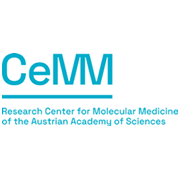
WP 6.3 Role of Selective Sulfur Nutrients across Human and Environmental Microbiomes
project description
Structure and function of microbiomes are significantly shaped by selective nutrients that provide exclusive metabolic niches for microorganisms. The concept of exclusive nutrient access promises targeted control over the abundance and activities of specific microorganisms. We will focus on organic sulfur compounds, such as plant sulfolipid-derived sulfoquinovose, as selective nutrients. We recently showed that sulfoquinovose is a candidate prebiotic that promotes the growth of beneficial human gut bacteria. However, sulfur transformations in microbial communities are complex. For example, degradation of sulfur compounds can result in excessive production of hydrogen sulfide (H2S), which contributes to inflammation and cancer development and progression in the human intestinal tract. In plants, excess sulfide production inhibits root growth. On the other hand, microbial turnover of sulfur-containing organic matter into assimilable sulfur compounds is key to plant growth, as sulfur deficiency is widespread in arable soils across the globe and often impairs crop production.
Use of organosulfur compounds as prebiotics requires a better understanding of sulfur cycling processes and their links to ecosystem functioning and human or plant health. The key questions here are: (i) What are the common metabolic principles and interaction mechanisms of microorganisms and phages involved in the processing of sulfur-containing organic matter across environmental and host- associated microbiomes? (ii) What is the impact of organosulfur degradation on nutrient cycling and greenhouse gas emissions from soils and on human and plant health including resistance to pathogens? This knowledge will be exploited for targeted modulation of the microbiome. We hypothesize that selective organosulfur nutrients can be used as prebiotics for stimulating beneficial microorganisms to further enhance target-oriented control of microbiome functions.
We will establish the first unified view of how organosulfur-cycling microorganisms are connected across ecosystems and influence soil, plant, and human health. Metabolic activities and interactions in human small and large intestine, soil, and eventually plant rhizosphere microbiomes will be analyzed upon controlled exposure to sulfur compounds such as sulfoquinovose using a multi-omics approach, including lipidomics. Stimulated in-situ activities of individual bacteria will be analyzed by single-cell isotope probing. Newly isolated sulfoquinovose-utilizing strains or cultures from public collections will represent candidate probiotics for each ecosystem. The impact of sulfur compounds on complex microbiomes will initially be tested in in-vitro microcosms. In-vivo precision editing of human microbiota will be evaluated in gnotobiotic mice colonized with defined human strain consortia, and in greenhouse experiments for plants.
We aim to develop a targeted approach for fine-tuned microbiome editing using sulfur-containing compounds such as sulfoquinovose as prebiotics combined with ecosystem-specific probiotics to enhance beneficial microbial functions.
work package leader

alexander loy
University of Vienna
Professor at the Division of Microbial Ecology (CeMESS)
CoE Key Researcher
work package members

thomas böttcher
CoE Key Researcher
university of vienna

clarissa campbell
CoE Key Researcher
center for moleclar medicine (Cemm, öaw)

clara priemer
PhD Student
university of vienna

sebastian tanabe
Postdoctoral Researcher, transitioned to MSCA Fellowship
university of vienna

wolfgang wanek
CoE Key Researcher
university of vienna
involved institutions


CoE publications in wp 6.3
Publications will follow soon

